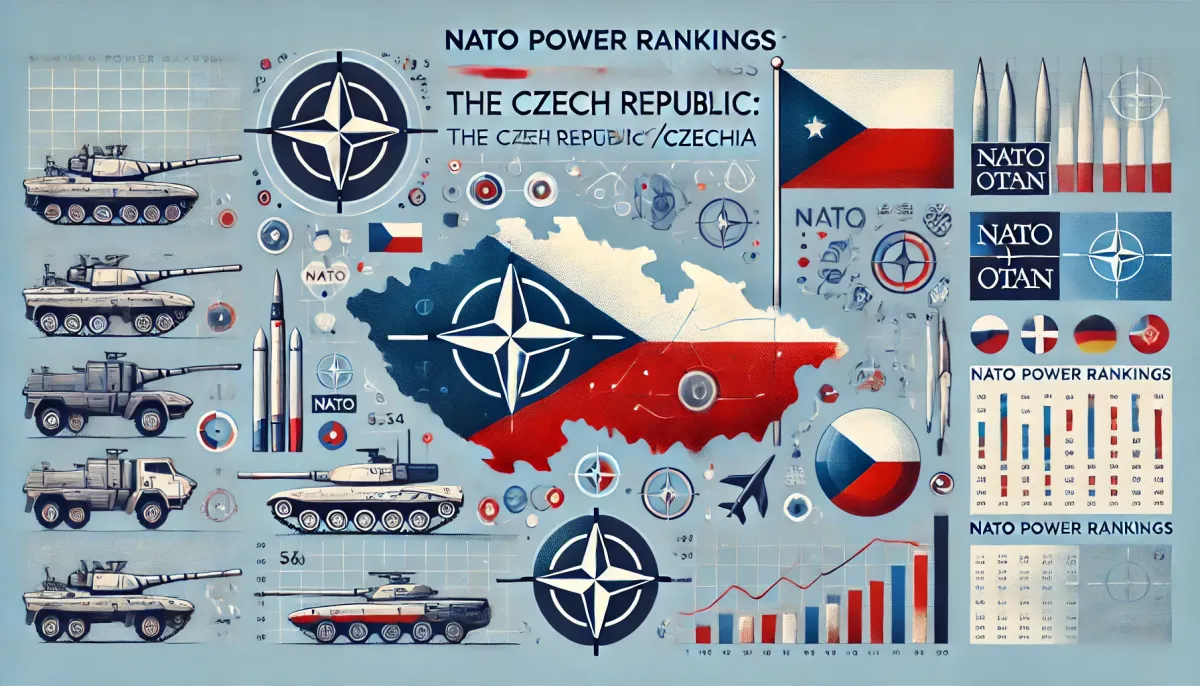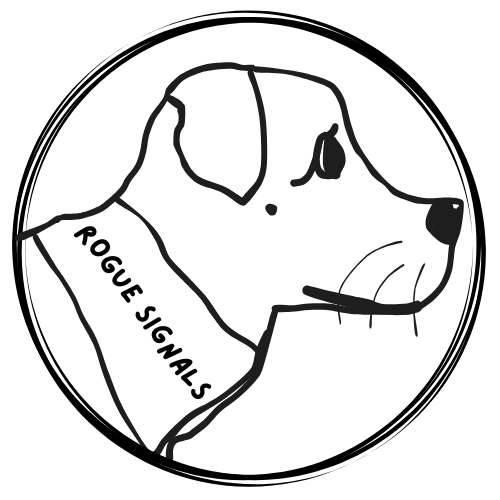NATO Power Rankings: The Czech Republic/Czechia

The North Atlantic Treaty Organization (NATO), a cornerstone of international military cooperation, has consistently evolved since its inception in 1949. As an intergovernmental military alliance, NATO's primary function is collective defense, wherein an attack against one member is considered an attack against all. This article delves into the role and significance of the Czech Republic, also known as Czechia, within NATO.
Understanding NATO and Its Historical Context
What Does NATO Stand For?
NATO, an acronym for the North Atlantic Treaty Organization, is an alliance formed primarily for mutual defense and security. Often referred to by its French acronym, OTAN (Organisation du Traité de l'Atlantique Nord), it was established in response to the geopolitical tensions following World War II. The alliance was designed to counterbalance the influence of the Soviet Union and its allies.
NATO’s foundation was built on the principle of collective defense, which is enshrined in Article 5 of the North Atlantic Treaty. This principle assures that an armed attack against one or more of the members in Europe or North America shall be considered an attack against them all. This tenet has been invoked only once, in response to the September 11 terrorist attacks in the United States.
Why Was NATO Created?
The primary impetus behind NATO's creation was the need for a unified defense strategy among Western countries during the Cold War era. The alliance aimed to deter Soviet aggression while promoting peace and stability in the Euro-Atlantic region. The North Atlantic Treaty, signed on April 4, 1949, in Washington D.C., laid the foundation for this strategic military alliance.
In the aftermath of World War II, the geopolitical landscape was marked by tension and the looming threat of Soviet expansionism. Western European nations, devastated by the war, sought security assurances from the United States and Canada, leading to the establishment of NATO. The alliance has since expanded its focus beyond conventional warfare, addressing issues like cyber threats, terrorism, and hybrid warfare.
NATO's Evolution Over the Decades
NATO has continually adapted to the changing security environment since its formation. During the Cold War, its primary mission was to deter Soviet aggression in Europe. The fall of the Berlin Wall and the dissolution of the Soviet Union prompted a strategic shift from collective defense to crisis management and cooperative security.
Post-Cold War, NATO's role expanded to include peacekeeping missions in the Balkans and Afghanistan, showcasing its ability to undertake out-of-area operations. The alliance has also initiated partnerships with non-member countries through programs like the Partnership for Peace (PfP) to foster dialogue and cooperation. These transformations reflect NATO's commitment to remaining relevant in a dynamic global security landscape.
Czech Republic's Journey into NATO
Is Czech Republic in NATO?
Yes, the Czech Republic is a member of NATO. The nation's membership reflects its strategic alignment with Western defense policies and its commitment to collective security.
The Czech Republic's decision to join NATO marked a significant shift in its foreign policy, moving away from the Soviet sphere of influence. This transition was part of a broader trend among Eastern European countries seeking integration with Western institutions. NATO membership has provided the Czech Republic with security guarantees and a platform for contributing to international peace and stability.
When Did Czech Republic Join NATO?
The Czech Republic joined NATO on March 12, 1999, alongside Poland and Hungary. This marked a significant expansion of the alliance into Eastern Europe, as these countries transitioned from Soviet influence to Western democratic norms.
The accession of the Czech Republic to NATO was not only a geopolitical milestone but also a testament to its commitment to democratic values and reforms. This step was preceded by rigorous political, economic, and military transformations aimed at meeting NATO’s standards. The Czech Republic's membership in NATO has since served as a cornerstone of its national security strategy.
Czech Republic as a NATO Ally
Since its accession, the Czech Republic has been an active participant in NATO operations and initiatives. The country contributes to various missions, including peacekeeping, crisis management, and cooperative security efforts. Its strategic location in Central Europe makes it a crucial ally within the alliance.
The Czech Republic has consistently demonstrated its commitment to NATO through its contributions to collective defense. Czech troops have participated in key NATO missions such as those in Afghanistan and the Balkans, showcasing their operational readiness and capability. Additionally, the Czech Republic engages in regular military exercises and training with NATO allies to enhance interoperability and readiness.
Czech Republic's Defense Policy and NATO
The Czech Republic’s defense policy is closely aligned with NATO’s strategic objectives. The country prioritizes modernization of its armed forces, ensuring they are capable of meeting the alliance’s operational demands. This includes investing in advanced technologies, strengthening cyber defenses, and enhancing rapid deployment capabilities.
As part of its commitment to NATO, the Czech Republic has also pledged to increase its defense spending to 2% of its GDP, in line with the alliance’s guidelines. This financial commitment underscores the Czech Republic’s dedication to supporting NATO’s collective security goals. Furthermore, the Czech Republic actively engages in NATO’s strategic planning processes, contributing to the development of the alliance’s future direction.
The Czech Republic's Military and Global Standing
What Is the Rank of Czech Republic Military in the World?
The Czech Republic's military is recognized for its professionalism and modernization efforts. While not among the world's largest military forces, it is regarded for its strategic capabilities and commitment to international peacekeeping missions. The Czech military emphasizes quality over quantity, with a focus on rapid deployment forces and specialized units.
The Czech Republic has invested significantly in modernizing its military infrastructure and capabilities. This includes the acquisition of new equipment, such as advanced fighter jets and armored vehicles, to enhance operational effectiveness. The Czech military also places a strong emphasis on training and education, ensuring that its personnel are well-prepared for complex international missions.
Czech Republic's Contributions to International Peacekeeping
The Czech Republic has a long-standing tradition of contributing to international peacekeeping missions. Czech troops have been deployed to various conflict zones around the world, including the Balkans, the Middle East, and Africa. These deployments demonstrate the Czech Republic’s commitment to global peace and stability.
Participation in international peacekeeping missions provides valuable experience for Czech military personnel, enhancing their skills and capabilities. The Czech Republic’s contributions to UN and NATO-led peacekeeping operations have earned it a reputation as a reliable and effective partner. These efforts align with the Czech Republic’s broader foreign policy goals of promoting peace and security through multilateral cooperation.
Czech Republic's Allies and Partnerships
Who Is Czech Republic Allied With?
Apart from its NATO membership, the Czech Republic maintains robust bilateral relations with numerous countries, including the United States. The Czech Republic is considered an American ally, sharing mutual interests in security, defense, and economic cooperation.
The Czech Republic’s alliance with the United States is characterized by close cooperation on defense and security issues. This partnership is reinforced through regular high-level dialogues, joint military exercises, and intelligence sharing. Additionally, the Czech Republic engages in defense cooperation with other NATO members, fostering a network of strategic partnerships that enhance its national security.
Are Ukraine and Czech Republic Allies?
The Czech Republic has expressed support for Ukraine, particularly in the context of NATO's Eastern European engagements. While not formal allies in the NATO sense, the Czech Republic and Ukraine share common interests in regional stability and security.
The Czech Republic has been vocal in its support for Ukraine’s sovereignty and territorial integrity, especially in the wake of Russian aggression. Czechia has provided humanitarian aid and political backing to Ukraine, advocating for its integration into European and transatlantic structures. This support aligns with the Czech Republic’s commitment to promoting stability and security in Eastern Europe.
The Czech Republic's Strategic Partnerships Beyond NATO
In addition to its NATO membership, the Czech Republic actively seeks to strengthen its strategic partnerships beyond the alliance. This includes engagement with the European Union, the Visegrad Group, and other regional organizations. These partnerships enable the Czech Republic to address a wide range of security challenges, from terrorism to cyber threats.
The Czech Republic’s participation in regional initiatives, such as the Visegrad Group, enhances cooperation on defense and security issues with neighboring countries. This multilateral approach allows the Czech Republic to leverage its strategic location in Central Europe to foster regional stability. Furthermore, the Czech Republic’s active involvement in EU defense initiatives complements its NATO commitments, reinforcing its role as a key player in European security.
NATO's Current Membership and Structure
Who Are the 32 NATO Countries?
As of now, NATO comprises 31 member countries, with Finland being the most recent addition. The alliance spans across North America and Europe, including significant powers such as the United States, Germany, and the United Kingdom.
NATO’s membership reflects a diverse range of countries, each contributing unique capabilities to the alliance. This diversity is a strength, enabling NATO to address a wide array of security challenges. The addition of new members, such as Finland, reflects the alliance’s ongoing commitment to collective security and its adaptability to changing geopolitical dynamics.
How NATO Expands and Integrates New Members
NATO’s expansion process involves rigorous political and military criteria, ensuring that new members are committed to the alliance’s principles. Prospective members must demonstrate a commitment to democracy, human rights, and the rule of law. The integration of new members involves extensive planning and cooperation to ensure seamless interoperability with existing NATO forces.
The accession process often includes a Membership Action Plan (MAP), which outlines the steps a country must take to join NATO. This process fosters transparency and accountability, ensuring that new members are prepared to contribute effectively to the alliance’s collective defense. NATO’s open-door policy underscores its commitment to welcoming countries that share its values and objectives.
Is Slovakia in NATO?
Yes, Slovakia is a member of NATO, having joined on March 29, 2004. This further solidified the alliance's presence in Central and Eastern Europe.
Slovakia’s accession to NATO marked a significant milestone in its post-Cold War integration with Western institutions. As a NATO member, Slovakia has contributed to various alliance missions, including those in Afghanistan and Kosovo. Slovakia’s membership enhances regional security, contributing to NATO’s strategic objectives in Central and Eastern Europe.
Is Lithuania in NATO?
Lithuania is also a NATO member, having joined alongside its Baltic neighbors, Latvia and Estonia, on March 29, 2004.
Lithuania’s membership in NATO represents a critical component of the alliance’s presence in the Baltic region. The Baltic states, including Lithuania, play a vital role in NATO’s deterrence and defense posture, especially in light of recent tensions with Russia. Lithuania’s strategic location and commitment to defense spending make it a valuable ally within NATO.
Is India a Part of NATO?
India is not a NATO member. The alliance's membership is primarily composed of countries from the North Atlantic region, though it does engage in partnerships and dialogues with non-member countries.
While India is not a NATO member, it maintains a cooperative relationship with the alliance through various partnership programs. These programs facilitate dialogue on security issues, including counterterrorism, maritime security, and cyber defense. India’s growing strategic importance in the Indo-Pacific region presents opportunities for enhanced collaboration with NATO on global security challenges.
The Role of the Czech Republic in NATO's Strategic Objectives
Czech Republic: A Key NATO Ally in Ukraine
The Czech Republic plays a significant role in NATO's strategy in Eastern Europe, particularly concerning Ukraine. Its contributions to NATO's defense posture in the region underscore its commitment to collective security and deterrence.
The Czech Republic’s strategic location and historical ties to Eastern Europe make it a critical player in supporting NATO’s efforts in Ukraine. Czechia has provided military assistance and training to Ukrainian forces, enhancing their capabilities in the face of aggression. This support aligns with the Czech Republic’s broader commitment to regional stability and NATO’s collective defense objectives.
The North Atlantic Council and Czech Republic's Participation
The North Atlantic Council, NATO's principal political decision-making body, involves representatives from all member countries, including the Czech Republic. This participation ensures that Czech interests and perspectives are considered in shaping NATO's strategic policies.
The Czech Republic’s active engagement in the North Atlantic Council allows it to influence key decisions affecting the alliance’s strategic direction. Czech representatives contribute to discussions on a wide range of issues, from defense planning to crisis management. This involvement underscores the Czech Republic’s commitment to playing a proactive role in shaping NATO’s future.
Atlantic Alliance and Czech Republic's Contribution
The Czech Republic's involvement in the Atlantic Alliance encompasses participation in joint military exercises, intelligence sharing, and strategic planning. These activities enhance NATO's operational readiness and collective defense capabilities.
Czech troops regularly participate in NATO’s multinational exercises, which are designed to enhance interoperability and readiness among alliance members. These exercises provide valuable training opportunities, allowing Czech forces to hone their skills in a multinational environment. Additionally, the Czech Republic contributes to NATO’s intelligence efforts, providing critical insights that support the alliance’s strategic objectives.
Enhancing NATO's Cyber Defense Capabilities
The Czech Republic is actively involved in enhancing NATO’s cyber defense capabilities, a critical component of modern warfare. Czechia’s expertise in cybersecurity is leveraged to protect NATO’s digital infrastructure from emerging threats. This contribution underscores the Czech Republic’s commitment to addressing non-traditional security challenges within the alliance.
Cybersecurity is a top priority for NATO, as cyber threats pose significant risks to military and civilian infrastructure. The Czech Republic’s investments in cyber defense technologies and personnel training bolster NATO’s ability to detect and respond to cyberattacks. This focus on cybersecurity aligns with the Czech Republic’s broader efforts to modernize its armed forces and enhance their operational effectiveness.
Conclusion
The Czech Republic's role within NATO exemplifies its commitment to international security and cooperation. As a pivotal member of the alliance, Czechia contributes to NATO's overarching goals of peace, stability, and collective defense. Its strategic location and modern military capabilities make it an indispensable ally in addressing contemporary security challenges. As NATO continues to adapt to global geopolitical shifts, the Czech Republic remains a steadfast partner in safeguarding the alliance's enduring values and objectives.
The Czech Republic's active participation in NATO reflects its dedication to maintaining a strong defense posture and contributing to global security. Czechia's involvement in NATO operations and initiatives enhances its standing as a reliable and capable ally. Moving forward, the Czech Republic will continue to play a crucial role in shaping NATO’s response to emerging threats and challenges.
The Czech Republic’s commitment to NATO is underscored by its investments in military modernization and its contributions to alliance missions. Czechia’s efforts to enhance its defense capabilities and engage in strategic partnerships bolster NATO’s collective security objectives. As the alliance navigates an increasingly complex security environment, the Czech Republic’s role as a key ally will remain vital to its success.



